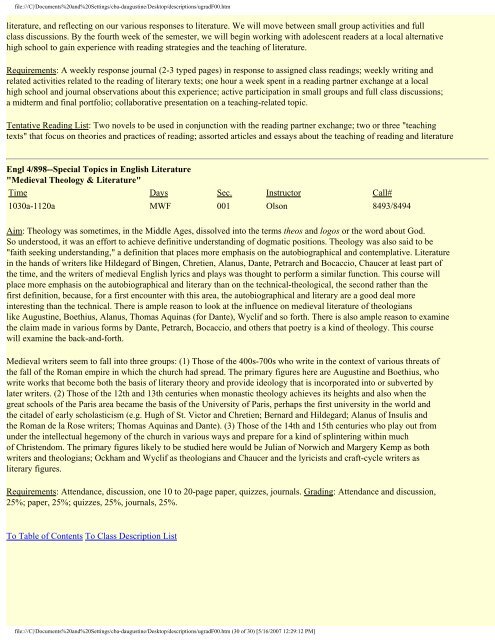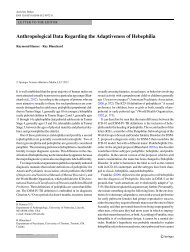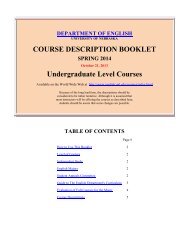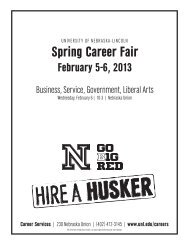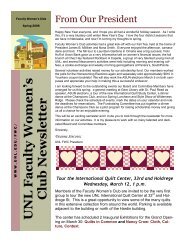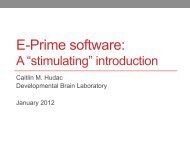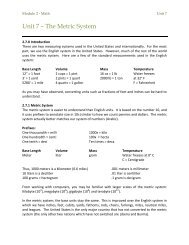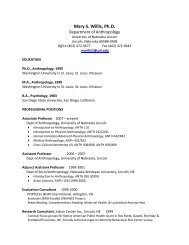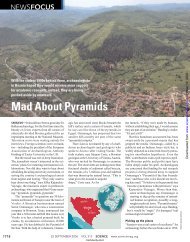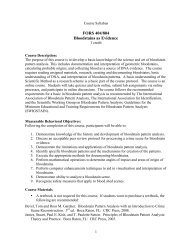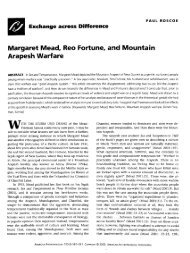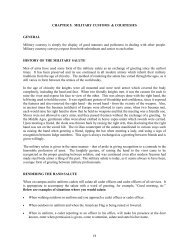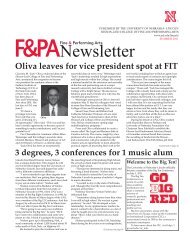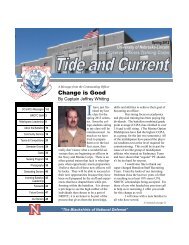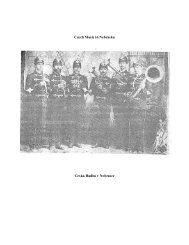Fall 2000 - The University of Nebraska–Lincoln
Fall 2000 - The University of Nebraska–Lincoln
Fall 2000 - The University of Nebraska–Lincoln
Create successful ePaper yourself
Turn your PDF publications into a flip-book with our unique Google optimized e-Paper software.
file:///C|/Documents%20and%20Settings/cba-daugustine/Desktop/descriptions/ugradF00.htm<br />
literature, and reflecting on our various responses to literature. We will move between small group activities and full<br />
class discussions. By the fourth week <strong>of</strong> the semester, we will begin working with adolescent readers at a local alternative<br />
high school to gain experience with reading strategies and the teaching <strong>of</strong> literature.<br />
Requirements: A weekly response journal (2-3 typed pages) in response to assigned class readings; weekly writing and<br />
related activities related to the reading <strong>of</strong> literary texts; one hour a week spent in a reading partner exchange at a local<br />
high school and journal observations about this experience; active participation in small groups and full class discussions;<br />
a midterm and final portfolio; collaborative presentation on a teaching-related topic.<br />
Tentative Reading List: Two novels to be used in conjunction with the reading partner exchange; two or three "teaching<br />
texts" that focus on theories and practices <strong>of</strong> reading; assorted articles and essays about the teaching <strong>of</strong> reading and literature<br />
Engl 4/898--Special Topics in English Literature<br />
"Medieval <strong>The</strong>ology & Literature"<br />
Time Days Sec. Instructor Call#<br />
1030a-1120a MWF 001 Olson 8493/8494<br />
Aim: <strong>The</strong>ology was sometimes, in the Middle Ages, dissolved into the terms theos and logos or the word about God.<br />
So understood, it was an effort to achieve definitive understanding <strong>of</strong> dogmatic positions. <strong>The</strong>ology was also said to be<br />
"faith seeking understanding," a definition that places more emphasis on the autobiographical and contemplative. Literature<br />
in the hands <strong>of</strong> writers like Hildegard <strong>of</strong> Bingen, Chretien, Alanus, Dante, Petrarch and Bocaccio, Chaucer at least part <strong>of</strong><br />
the time, and the writers <strong>of</strong> medieval English lyrics and plays was thought to perform a similar function. This course will<br />
place more emphasis on the autobiographical and literary than on the technical-theological, the second rather than the<br />
first definition, because, for a first encounter with this area, the autobiographical and literary are a good deal more<br />
interesting than the technical. <strong>The</strong>re is ample reason to look at the influence on medieval literature <strong>of</strong> theologians<br />
like Augustine, Boethius, Alanus, Thomas Aquinas (for Dante), Wyclif and so forth. <strong>The</strong>re is also ample reason to examine<br />
the claim made in various forms by Dante, Petrarch, Bocaccio, and others that poetry is a kind <strong>of</strong> theology. This course<br />
will examine the back-and-forth.<br />
Medieval writers seem to fall into three groups: (1) Those <strong>of</strong> the 400s-700s who write in the context <strong>of</strong> various threats <strong>of</strong><br />
the fall <strong>of</strong> the Roman empire in which the church had spread. <strong>The</strong> primary figures here are Augustine and Boethius, who<br />
write works that become both the basis <strong>of</strong> literary theory and provide ideology that is incorporated into or subverted by<br />
later writers. (2) Those <strong>of</strong> the 12th and 13th centuries when monastic theology achieves its heights and also when the<br />
great schools <strong>of</strong> the Paris area became the basis <strong>of</strong> the <strong>University</strong> <strong>of</strong> Paris, perhaps the first university in the world and<br />
the citadel <strong>of</strong> early scholasticism (e.g. Hugh <strong>of</strong> St. Victor and Chretien; Bernard and Hildegard; Alanus <strong>of</strong> Insulis and<br />
the Roman de la Rose writers; Thomas Aquinas and Dante). (3) Those <strong>of</strong> the 14th and 15th centuries who play out from<br />
under the intellectual hegemony <strong>of</strong> the church in various ways and prepare for a kind <strong>of</strong> splintering within much<br />
<strong>of</strong> Christendom. <strong>The</strong> primary figures likely to be studied here would be Julian <strong>of</strong> Norwich and Margery Kemp as both<br />
writers and theologians; Ockham and Wyclif as theologians and Chaucer and the lyricists and craft-cycle writers as<br />
literary figures.<br />
Requirements: Attendance, discussion, one 10 to 20-page paper, quizzes, journals. Grading: Attendance and discussion,<br />
25%; paper, 25%; quizzes, 25%, journals, 25%.<br />
To Table <strong>of</strong> Contents To Class Description List<br />
file:///C|/Documents%20and%20Settings/cba-daugustine/Desktop/descriptions/ugradF00.htm (30 <strong>of</strong> 30) [5/16/2007 12:29:12 PM]


